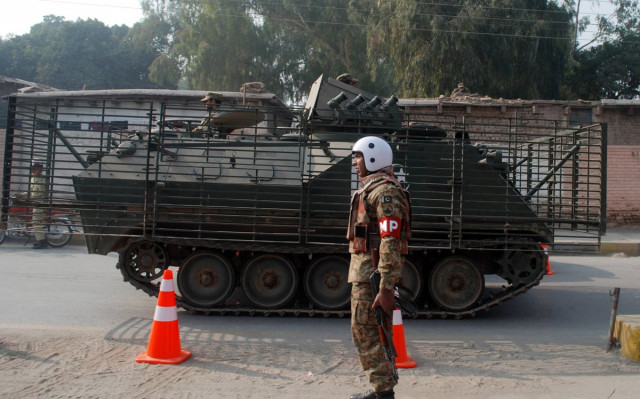Crisis management: Activists seek ‘paradigm shift’ to resolve conflict
Say absence of policies based on consensus has led to countless problems.

Killing militants will not guarantee lasting peace until policy-makers devise suitable mechanisms to resolve existing conflicts.
This was shared at a seminar organised by Sahara Foundation here on Thursday. The seminar focused on the security threat which has gripped the country and was attended by social and political activists, academics and students.
During a presentation on conflict transformation and peace-building, Muhammad Ahsan Khan, executive director of Rural Development Project, voiced concern over the fact that most policy-makers lack factual knowledge on how conflicts can be resolved. The absence of policies based on consensus has led to countless problems, he said.

“For instance, different groups have self-styled definitions of terrorism and are therefore ill-equipped to resolve conflict,” Khan added.
According to Khan, over the last 67 years, the country has been exposed to open conflict and triggered violence and uncertainty in its wake. Socio-economic disparities, ethnic and linguistic disputes and religious clashes have wreaked havoc in the lives of Pakistan’s citizens, he added.
“We have lost lives of over 70,000 citizens and personnel of the armed forces over the past decade,” he said. “The figure is much higher than the number of lives lost when the Kashmir dispute began.”
Khan insisted the country needs a paradigm shift in its policy to deal with the scourge of violence.
“We need to learn a lesson from our past mistakes and help our country climb out of its predicament,” said the executive director.
Speaking on the occasion, academic Waheed Qureshi condemned the massacre of children at Army Public School in Peshawar. He emphasised on the need for an effective strategy to put militancy to rest.
“A large number of conflicts in Pakistan emanate from poverty, economic disequilibrium and the lack of basic facilities for citizens,” he added.
However, Qamar Hayat, executive director at Sahara, said the APS attack was an outcome of a clash of priorities within the state.
“The policy of accepting foreign dictations has backfired,” Hayat said. “We need policies which emphasise national cohesion.”
According to Hayat, once the military and the political leadership agree to join hands, terrorism will die a natural death in Pakistan.
Published in The Express Tribune, December 26th, 2014.













COMMENTS
Comments are moderated and generally will be posted if they are on-topic and not abusive.
For more information, please see our Comments FAQ